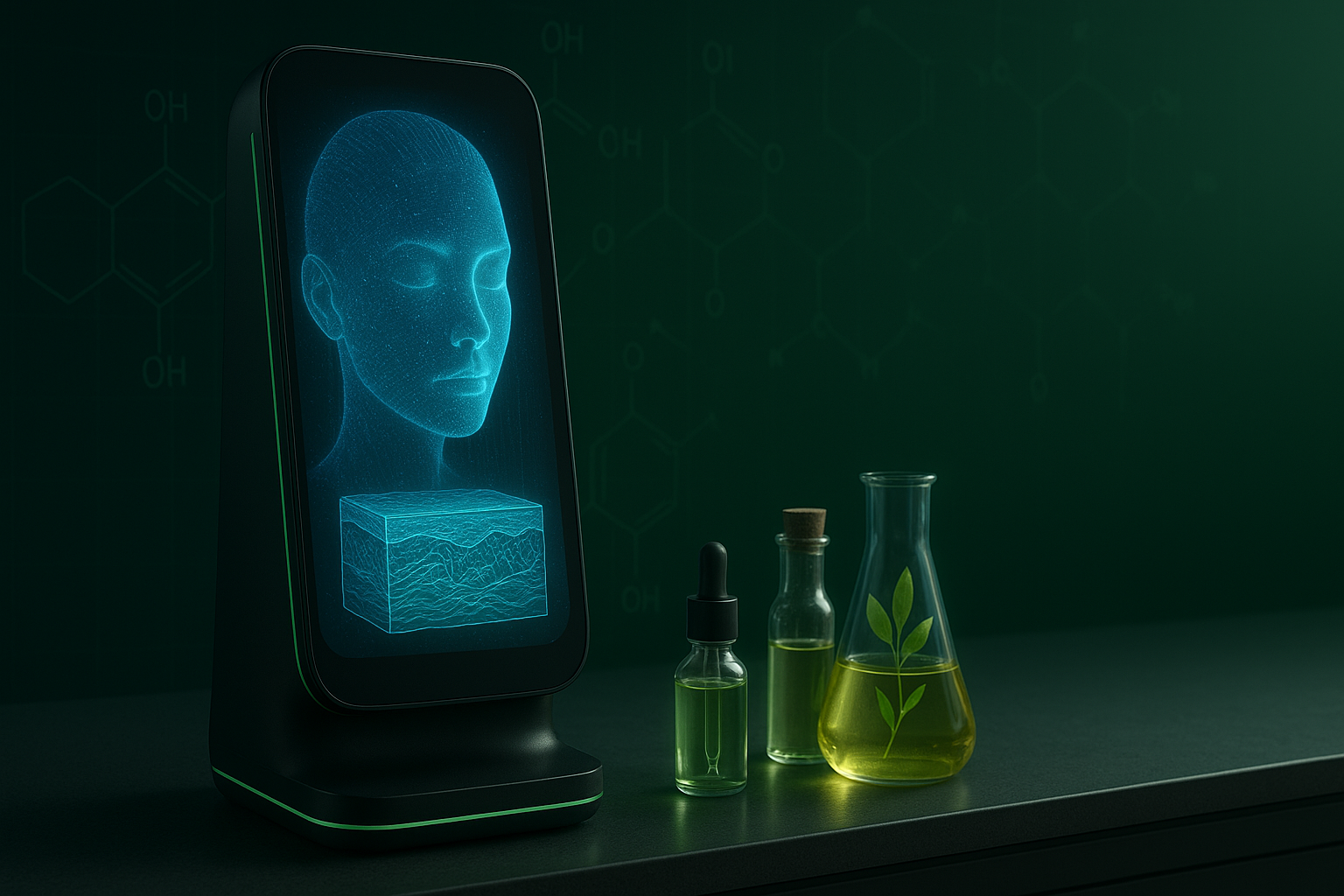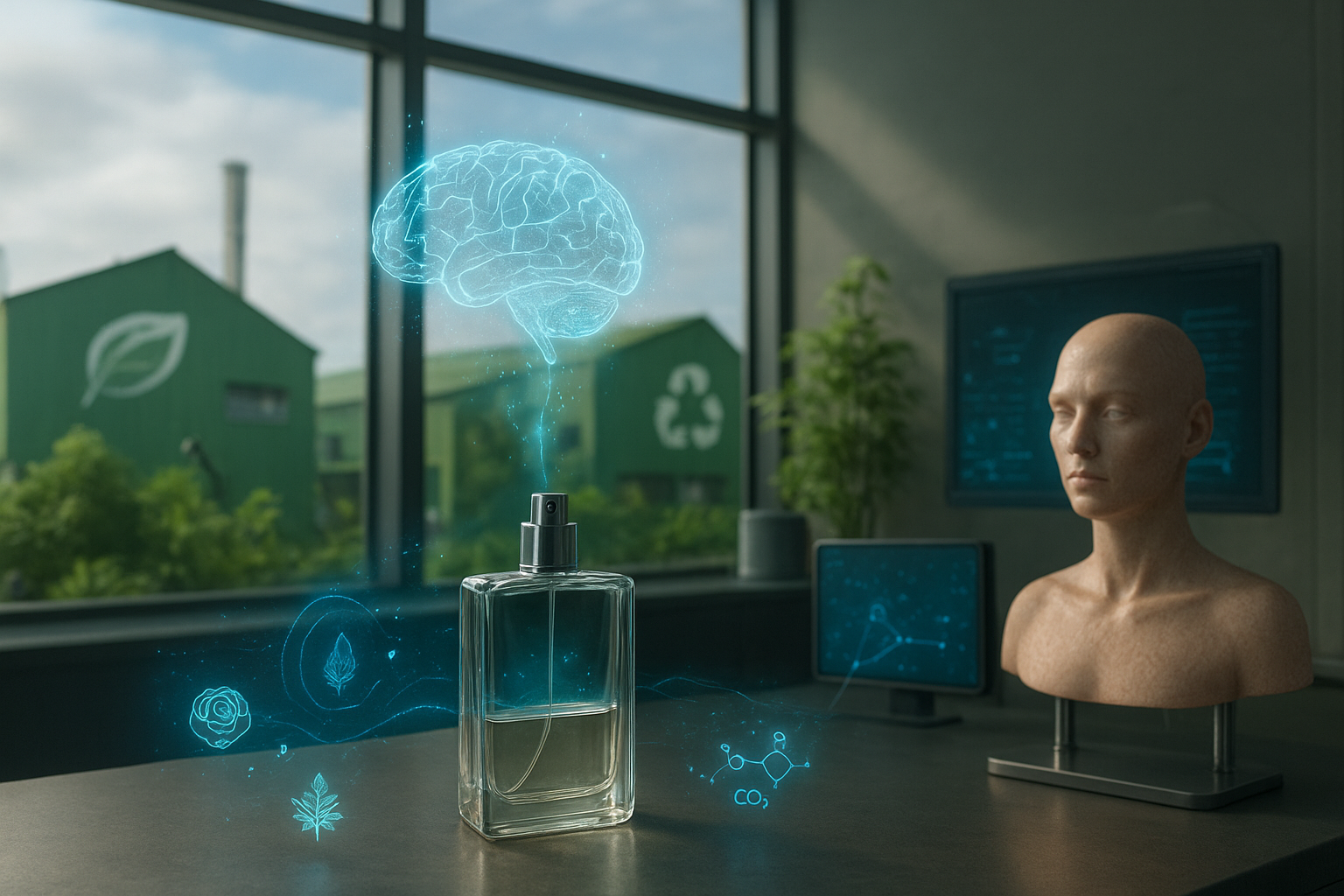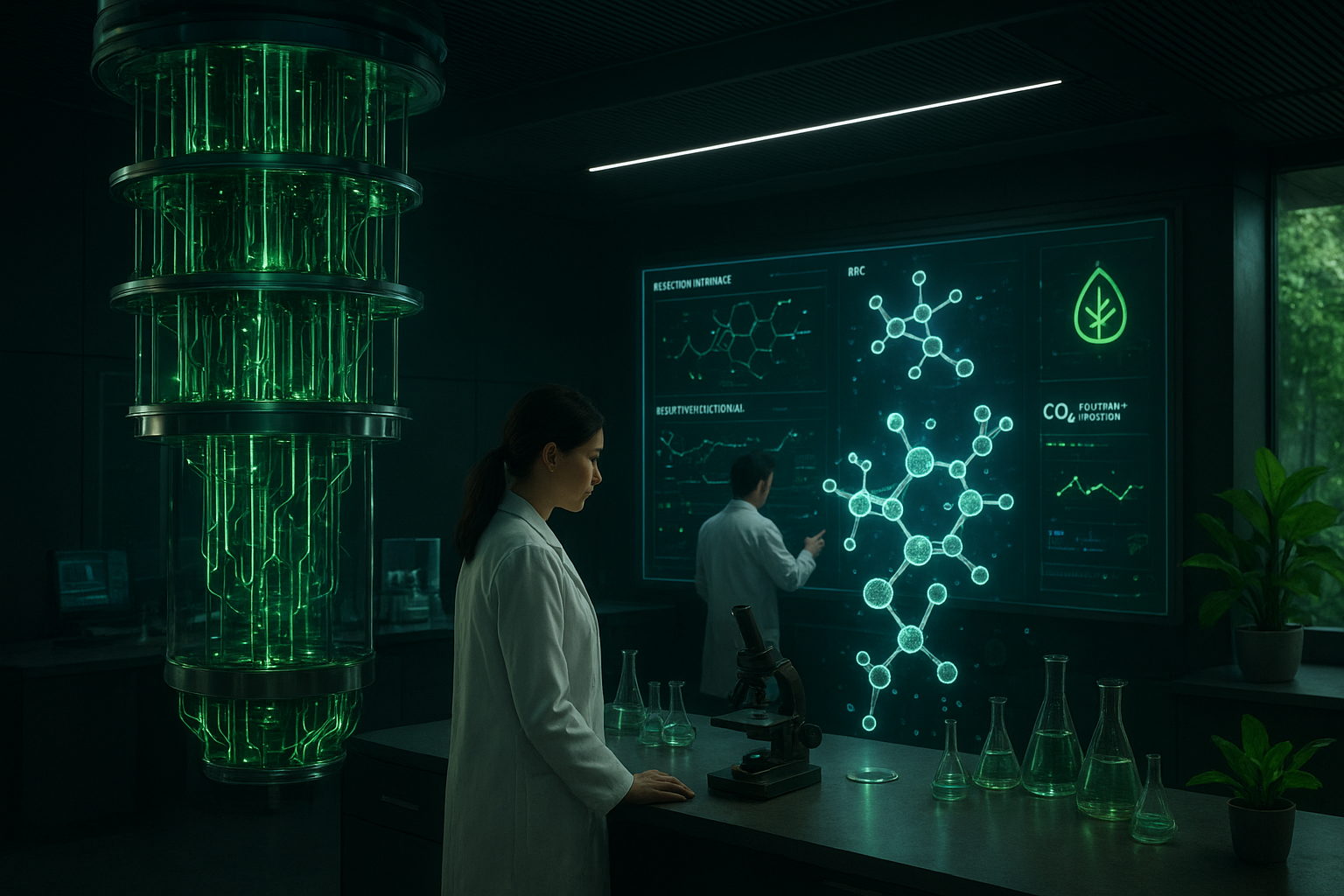The Future of Food Additives: AI’s Role in Creating Natural Preservatives
How AI can shap the future of food additives by designing natural preservatives that enhance shelf life, ensure safety, and support clean-label innovation.
AI Meets Global Regulations: How Chemcopilot Streamlines Compliance in Chemistry
Chemcopilot embeds EU, US, Korea, Brazil, and India chemical regulations directly into workflows, turning compliance into a driver of innovation.
What Would Be a “Green” Method of Increasing Energy Efficiency?
Discover sustainable methods to boost energy efficiency, from green chemistry to smart AI-driven solutions in industrial processes.
Generative AI in Molecular Discovery – From Design to Synthesis
Generative AI is revolutionizing molecular discovery, creating novel compounds with built-in synthesis routes to speed innovation in chemistry.
The Challenge of Chemical Space and the Role of Artificial Intelligence
Exploring the vast chemical space: how AI helps scientists navigate millions of molecules, accelerate discovery, and transform molecular design.
The Science of AI-Generated Skincare: Personalized Formulations for Every Skin Type
AI is transforming skincare with personalized, sustainable formulations. Discover how Chemcopilot powers safer, science-driven beauty.
The Future of Electrochemistry: AI-Driven CO₂ Conversion into Valuable Chemicals
Discover how AI is revolutionizing electrochemistry, enabling CO₂ conversion into valuable chemicals and driving the future of sustainable innovation.
Density Functional Theory (DFT): Unlocking the Quantum World of Chemistry
Learn how Density Functional Theory (DFT) unlocks quantum chemistry, predicting molecular properties and reactions for materials, energy, and drug discovery.
Smart Catalysts: How AI is Designing More Efficient Chemical Reactions
Learn how AI is designing smart catalysts that make chemical reactions faster, greener, and more efficient, transforming industries and sustainability.
The Hidden Influence of Reactive Oxygen Species (ROS) in Modern Chemistry
How Reactive Oxygen Species (ROS) impact chemistry, toxicology, compliance, and sustainability—and how AI tools like ChemCopilot help manage risks.
AI in Perfumery: Crafting Sustainable Fragrances Without Animal Testing
How AI is revolutionizing perfumery by replacing animal testing with 3D skin models, predictive toxicology, and sustainable ingredient design. Learn how companies like Grupo Boticário and Natura &Co are crafting ethical, eco-friendly fragrances for the future.
Continuous Flow Chemistry: How AI is Making Batch Processing Obsolete
Discover how artificial intelligence is transforming continuous flow chemistry, replacing outdated batch processing with smarter, sustainable, and more efficient chemical manufacturing.
The Role of Quantum Computing in Accelerating Chemical Discovery
Discover how quantum computing is transforming chemical discovery by simulating molecular interactions, accelerating drug development, and enabling sustainable material design with unprecedented speed and accuracy.
The Importance of Data Quality in PLM for the Chemical Industry
Discover why data quality is the foundation of PLM in the chemical industry. Learn how trusted, centralized data ensures compliance, accelerates R&D, strengthens sustainability, and enables AI-driven innovation.
AI Usage and Adoption in the U.S.: Industry Trends and Company Investments (2025)
AI adoption in the U.S. is booming across finance, healthcare, retail, and manufacturing. See how Big Tech invests billions — and how Chemcopilot makes AI accessible for companies of any size.
Self-Optimizing Chemical Plants: How AI is Enabling Autonomous Manufacturing
Discover how AI-driven self-optimizing chemical plants enable autonomous manufacturing, boosting efficiency, safety, and sustainability.
TSCA and AI: Can Predictive Modeling Help Avoid Costly Chemical Bans?
Explore how AI-driven predictive modeling can help companies comply with the U.S. TSCA, anticipate regulatory risks, and avoid costly chemical bans. Learn how Chemcopilot supports compliance, toxicology predictions, and sustainable innovation.
Beyond PFAS: The Next “Forever Chemicals” Under Scrutiny
PFAS are only the beginning. Discover which new “forever chemicals” are under global regulatory scrutiny, their risks to health and the environment, and how AI tools like Chemcopilot can help companies stay ahead of compliance and sustainability challenges.
REACH 2.0: How AI Can Simplify Compliance for Global Chemical Regulations
Discover how AI is transforming chemical compliance under REACH 2.0 and other global regulations. Learn how Chemcopilot helps reduce risks, automate documentation, and simplify regulatory workflows.





















